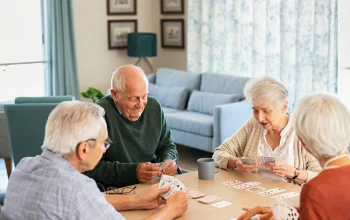You might think of bingo as just a fun game for community centers or retirement homes—but what if it’s secretly a brain booster? Turns out, this classic numbers game does more than pass the time. It sharpens minds, strengthens memory, and even fights cognitive decline. Let’s dive in.
How Bingo Engages the Brain
Bingo isn’t just luck. It’s a mental workout disguised as entertainment. Here’s why:
- Pattern recognition: Scanning cards and matching numbers activates the brain’s visual processing centers.
- Quick decision-making: Players must react fast when their number’s called—no time for hesitation.
- Multitasking: Listening, scanning, and marking simultaneously? That’s a cognitive triple threat.
Think of it like a crossword puzzle… but with more shouting. The brain thrives on this kind of layered stimulation.
The Science Behind Bingo and Memory
Studies back this up. A University of Southampton study found that bingo players—especially older adults—had better memory, reaction times, and mental agility than non-players. Here’s the breakdown:
| Cognitive Skill | Improvement Observed |
| Short-term memory | Up to 30% better recall |
| Processing speed | Faster number recognition |
| Attention span | Longer focus periods |
Not bad for a game invented in 16th-century Italy, right?
Bingo vs. Other Brain Games
Sure, Sudoku and chess get all the credit. But bingo holds its own—especially for older adults. Here’s how it compares:
- Social interaction: Unlike solo puzzles, bingo’s inherently social—boosting mood and brain health.
- Low barrier to entry: No complex rules. Anyone can play, regardless of education level.
- Auditory + visual: Combines listening and looking, engaging multiple senses at once.
That last point’s key. Dual-tasking (listening while scanning) is like giving your brain a HIIT workout.
Unexpected Benefits: Stress and Dopamine
Here’s where it gets interesting. The anticipation of a win triggers dopamine release—the brain’s “reward chemical.” This does two things:
- Reduces stress hormones (cortisol)
- Enhances neural plasticity (fancy term for brain flexibility)
Translation? Bingo might literally rewire your brain for better learning.
Bingo for Aging Brains
As we age, cognitive decline becomes a real concern. But activities like bingo can slow the process. A study on dementia prevention noted that seniors playing bingo weekly showed:
- Slower memory loss rates
- Improved verbal fluency
- Stronger social connections (which indirectly protect brain health)
It’s not a cure-all, sure. But as part of a brain-healthy lifestyle? Absolutely.
The “Bingo Effect” in Younger Players
Don’t assume this is just for seniors. Millennials flocking to bingo halls (yes, really) report similar benefits:
“After months of remote work, my focus was shot. Weekly bingo nights forced my brain to engage differently.” — Sarah, 28
The takeaway? Cognitive exercise doesn’t have to feel like homework.
How to Maximize Bingo’s Brain Benefits
Want to level up? Try these tweaks:
- Play speed bingo: Faster calls = more mental exertion
- Use multiple cards: Juggling 3-4 cards amps up the challenge
- Switch it up: Try themed versions (music bingo, trivia bingo) to engage different skills
The goal? Keep your brain guessing. Comfort is the enemy of growth—for muscles and neurons.
The Bigger Picture
In a world obsessed with brain-training apps, we overlook simple solutions. Bingo’s been honing minds for centuries—without subscriptions or software updates. Maybe that’s the real jackpot.





